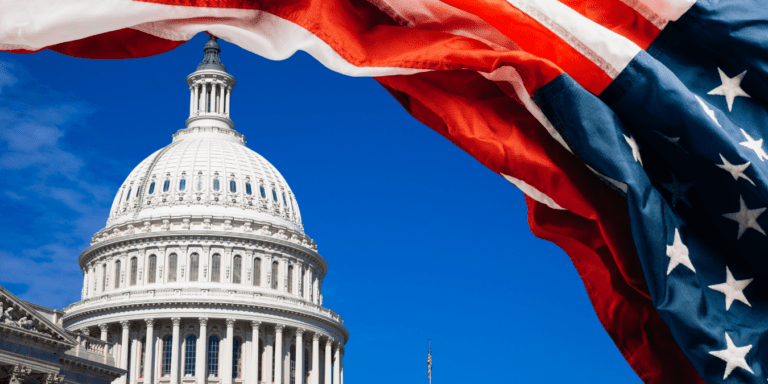
Nvidia’s Billion-Dollar Challenge: Why Is Nvidia’s Blackwell AI Chip Ban in 2025 Shaking Global Tech?
Nvidia’s 2025 Blackwell AI chip export ban is rewriting the rules of global tech dominance—but what’s the hidden impact on innovation, markets, and India’s AI surge? Discover why this game-changing move locks out China from top-tier AI power yet unlocks new pathways for emerging markets. The full story will surprise you.
Could the world’s AI revolution face a sudden twist? After US President Donald Trump declared that Nvidia’s top-tier Blackwell AI chips are off-limits to China and other countries, the chipmaker’s global business faces an unprecedented crossroads. What unseen ripple effects could this ban unleash—not just on China but on Nvidia’s market dominance, innovation trajectory, and India’s burgeoning AI ambitions?
In 2025, Nvidia stands at a critical crossroads following US President Donald Trump’s declaration that its most advanced Blackwell AI chips will be reserved exclusively for American firms, barring exports to China and other countries. This bold move is part of a broader US strategy to maintain technological supremacy and curb China’s AI ambitions. Nvidia, the global leader in AI semiconductors, faces a complex challenge: balancing compliance with restrictive export controls while sustaining growth and innovation in an increasingly fragmented geopolitical landscape. The Blackwell chip, hailed as a breakthrough in AI processing power, is essential for training sophisticated generative AI models. The ban disrupts Nvidia’s access to one of its largest markets but simultaneously accelerates shifts toward diversification of supply and markets. Understanding how Nvidia will adapt its supply chains, product strategies, and market focus is vital for grasping the future trajectory of AI technology and its global business implications in 2025 and beyond.
The Strategic Ban: How It Shapes Nvidia’s Business Scope
- Exclusive Access for US Firms: Trump’s stance restricts Blackwell chip sales to US customers, barring China and select nations. This sharply narrows Nvidia’s addressable market for its highest-end AI chips.
- Revenue Implications: China, a massive consumer of AI and semiconductor technologies, is effectively cut off from these chips. Nvidia potentially loses billions in sales, but protects US technology leadership amid geopolitical tech tensions.
- Supply Chain Shift: Nvidia accelerates US-centric manufacturing, including assembling Blackwell chips in Arizona to comply with export controls—aligning with “America First” policies.
- Global Market Diversification: With China excluded, Nvidia intensifies focus on other AI-hungry regions like India, Europe, and the Middle East, where demand for AI infrastructure surges.
- Innovation Under Pressure: The move pressures Nvidia to innovate rapidly to maintain dominance as China invests in homegrown chips amid trade barriers.
Why It Matters to India in 2025
- Opportunity for Indian AI Ecosystem: India’s AI industry stands to gain from Nvidia’s pivot, with easier access to advanced chips compared to restricted China.
- Competitive Edge & Collaboration: Indian firms involved in AI research, cloud, and data centers could leverage Nvidia’s expanding footprint as China faces limited access.
- Geopolitical Tech Realignment: The China-US technology rivalry accelerates India’s strategic partnerships with the US and Nvidia, potentially boosting investment and innovation ecosystems.
How Will Nvidia Navigate Export Restrictions in 2025
In 2025, Nvidia is navigating export restrictions, particularly the US-imposed ban on selling its top-tier Blackwell AI chips to China and certain other countries, by recalibrating its business strategy on multiple fronts:
- US-Centric Manufacturing: Nvidia is ramping up domestic chip production in US facilities like Arizona, ensuring compliance with export controls and minimizing reliance on foreign manufacturing bases, which helps retain access to advanced manufacturing technology while adhering to regulations.
- Market Diversification: With China effectively restricted from premium chip access, Nvidia is intensifying focus on other rapidly growing markets such as India, Europe, and the Middle East. These regions have surged demand for AI infrastructure, providing Nvidia with alternative revenue streams.
- Product Tiering: Nvidia is likely to market different product tiers globally—reserving the most advanced chips for the US and allied countries while offering slightly lower-tier chips to restricted markets, maintaining a presence without violating export rules.
- Innovation Acceleration: To maintain technological dominance amid geopolitical constraints, Nvidia is accelerating R&D to introduce new AI chip architectures that maximize performance within regulatory limits and sustain its competitive edge.
- Strategic Partnerships: The company is deepening collaboration with US government agencies and allied firms to strengthen its position as a key semiconductor and AI leader aligned with national security and economic priorities.
- Legal and Diplomatic Engagement: Nvidia is actively engaging with policymakers to seek clarifications, exemptions, or modifications to restrictions, balancing business interests with compliance.
Analysing Global AI Industry Impact from Nvidia Blackwell Ban
The US-imposed ban on Nvidia’s Blackwell AI chips exports to China and other countries in 2025 significantly reshapes the global AI industry, triggering complex dynamics of innovation, market competition, and geopolitical tech realignment.
Industry Innovation and Technology Leadership
The restriction consolidates US leadership in cutting-edge AI semiconductor technology, ensuring that Nvidia’s most powerful chips power domestic and allied AI advancements exclusively. This protectionism accelerates innovation cycles within US borders but constrains global diffusion of ultra-advanced AI processing capabilities, potentially slowing AI progress in banned regions.
Market Fragmentation and Competitive Shifts
China, deprived of access to Blackwell chips, rushes to boost its indigenous semiconductor programs, intensifying competition in AI chip design and production. This bifurcation fosters a split global AI ecosystem: one driven by US and allied technologies, and another by China’s homegrown alternatives. This division complicates international AI collaboration and elevates development costs globally.
Supply Chain and Investment Realignments
Global supply chains pivot as chip fabrication and assembly consolidate within the US and friendly nations. Investments in AI infrastructure outside the US and China, especially in regions like India, Europe, and the Middle East, spike as these markets become alternative growth hubs.
Industry Urgency and Strategic Importance
The ban underscores the AI chip industry’s strategic importance as a national security asset, prompting governments to ramp up protective policies and boost domestic capabilities. Firms worldwide face urgency to innovate within new constraints while navigating an increasingly politicized technology landscape.
Outlook
Overall, the Nvidia Blackwell ban amplifies geopolitical rivalry across the AI sector, forging a more fragmented, politically charged industry environment. This disruption will dictate investment flows, innovation paths, and global AI leadership for years to come. Stakeholders must adapt rapidly to sustain competitiveness amid rising protectionist barriers and shifting alliances.
Emotional Triggers
- Aspiration: Indian AI pioneers could ride Nvidia’s redirected growth wave, accessing cutting-edge tech for breakthroughs.
- Urgency: Indian businesses must act fast to grab this expanded opportunity before competitors capitalize.
- Relief: Access to premier AI chips without export challenges could ease technological bottlenecks.
Actionable Takeaways for Indian Readers
- Track Nvidia’s evolving chip release plans and regional market focus.
- Explore partnerships and investments with Nvidia and US tech players.
- Monitor India-US tech collaboration incentives expanding post-chip ban.
- Prepare for intensified innovation competition as China doubles down on self-reliance.
What’s Next? The High-Stakes AI Chip Chessboard
The high-stakes ban on Nvidia’s Blackwell AI chips marks a pivotal inflection point in the global AI and semiconductor arena. This decisive move ensures that the most powerful AI processing capabilities remain in US and allied hands, creating a pronounced technological divide with China. The ban intensifies the AI arms race, accelerating innovation within the US ecosystem while compelling China to rapidly scale homegrown alternatives. As Nvidia navigates these restrictions, its future strategy will shape market access and supply chains, influencing global AI development trajectories. For the broader industry, the Blackwell ban signals an era of geopolitical tech fragmentation, where AI leadership is both a commercial prize and a national security imperative. Countries and companies worldwide must strategically adapt to this bifurcated landscape, fostering innovation and alliances aligned with shifting export controls. This evolving chessboard holds profound implications for the future of AI technology, economic competitiveness, and geopolitical power, setting the stage for a new decade of complex global tech rivalry.
































